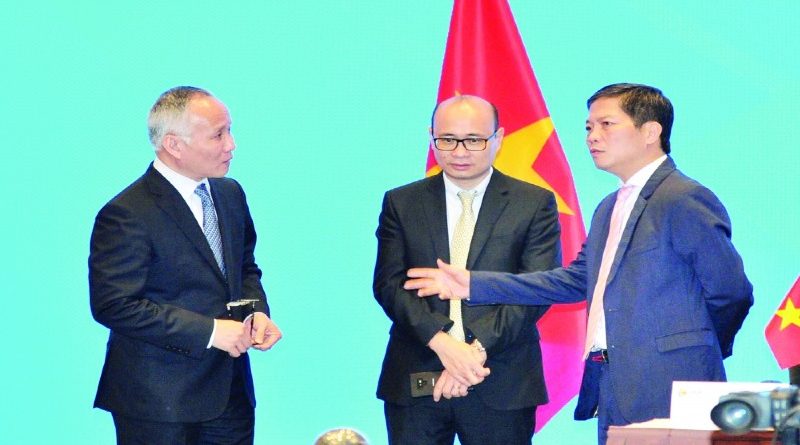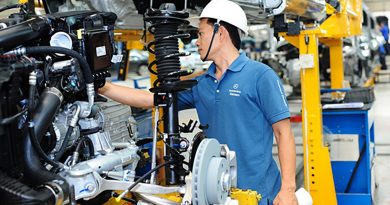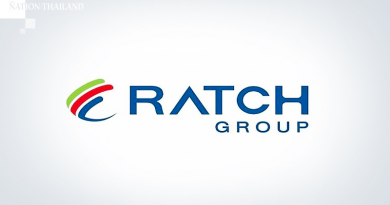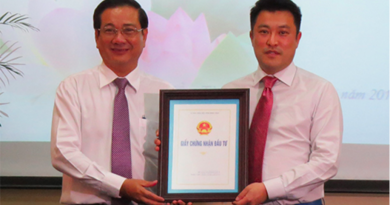Ministers foresee trade, investment contractions in Southeast Asia
ASEAN economic ministers, meeting online in late August under Vietnam’s chair, have acknowledged that the Covid-19 pandemic will likely result in deep trade and investment contractions and a drop in productive economic activities within the region this year. The ministers discussed a series of issues related to promoting intra- and extra-regional cooperation, upholding the central role of the 10-member Association of Southeast Asian Nations and adapting to new challenges.
Strengthening cooperation
In terms of intra-regional cooperation, the ministers welcomed the steady progress made in customs integration for the seamless flow of goods and agreed to approve import tariffs in implementing the ASEAN Trade in Goods Agreement (ATIGA) converted from the list of the ASEAN Harmonized Tariff Nomenclature (AHTN) 2012 to AHTN 2017. They also agreed to complete procedures for the signing of the ASEAN Mutual Recognition Arrangement on Type Approval for Automotive Products (AP MRA) and conduct the ASEAN-Wide Self Certification (AWSC) Scheme from September 20, 2020.
Regarding extra-regional cooperation, ASEAN member countries agreed to prioritize the signing of the Regional Comprehensive Economic Partnership (RCEP) by the end of this year as a basis for strengthening the business community’s confidence and the sustainable structure of the regional economy. They also reaffirmed the opening of negotiations with India.
ASEAN economic ministers and those of China, Japan, and the Republic of Korea (ASEAN+3) adopted an action plan on easing the Covid-19 economic impact and a joint initiative on economic connection to fight the pandemic. In particular, they agreed to maintain market opening to trade and investment, limit the application of unnecessary trade barriers, increase measures to facilitate trade in order to stabilize production, sustain supply chain linkages, and promote post-pandemic recovery.
The ministers also noted the continuing efforts toward the twin goals of reducing trade transaction costs by 10 percent and doubling intra-ASEAN trade between 2017 and 2025.
Declarations, initiatives and action plans are an important basis for ASEAN nations and partners to implement necessary solutions in order to fight the Covid-19 pandemic in the short term and promote sustainable growth in the long term, Vietnamese Minister of Industry and Trade Tran Tuan Anh said.
Promoting Vietnam’s role as ASEAN Chair
The theme chosen by Vietnam for ASEAN Year 2020, “Cohesive and Responsive”, was prophetic. Given that ASEAN member countries all have to apply travel restrictions and social distancing, in its role as ASEAN Chair in 2020, Vietnam quickly changed the format of ASEAN events from traditional to online meetings, contributing to their success.
Among the 13 initiatives proposed by Vietnam, two have been completed – the building of an ASEAN digital integration index and connectivity of ASEAN innovation centers. Other initiatives and priorities are being discussed and implemented in line with goals set for 2020.
The completion of economic initiatives and priorities will contribute to promoting ASEAN’s internal strength and enhancing the role of the ASEAN Economic Community, while helping the organization respond to non-traditional challenges in the future, Vietnamese Minister of Industry and Trade Tran Tuan Anh said.
The successful organization of the 52nd ASEAN Economic Ministers’ Meeting and related meetings contributed to helping ASEAN become a larger economic space. In addition, issues agreed by ASEAN economic ministers also aimed to promote the regional economy more strongly to be the fulcrum for ASEAN member countries to possess a favorable competitive position compared to other economies.
Source:ven.vn







